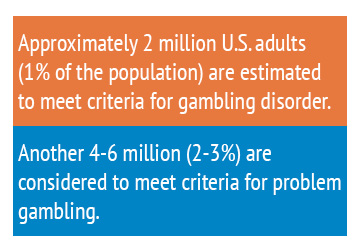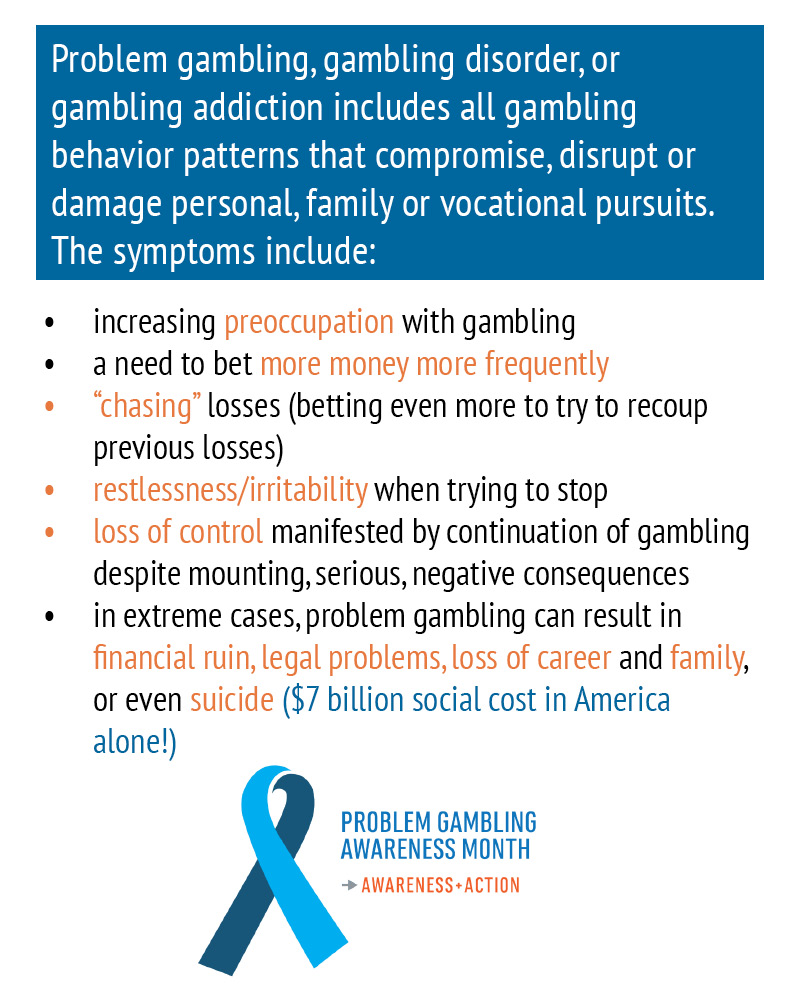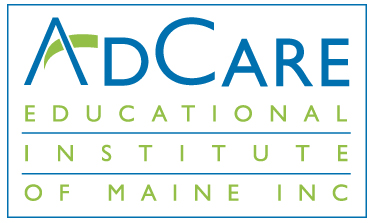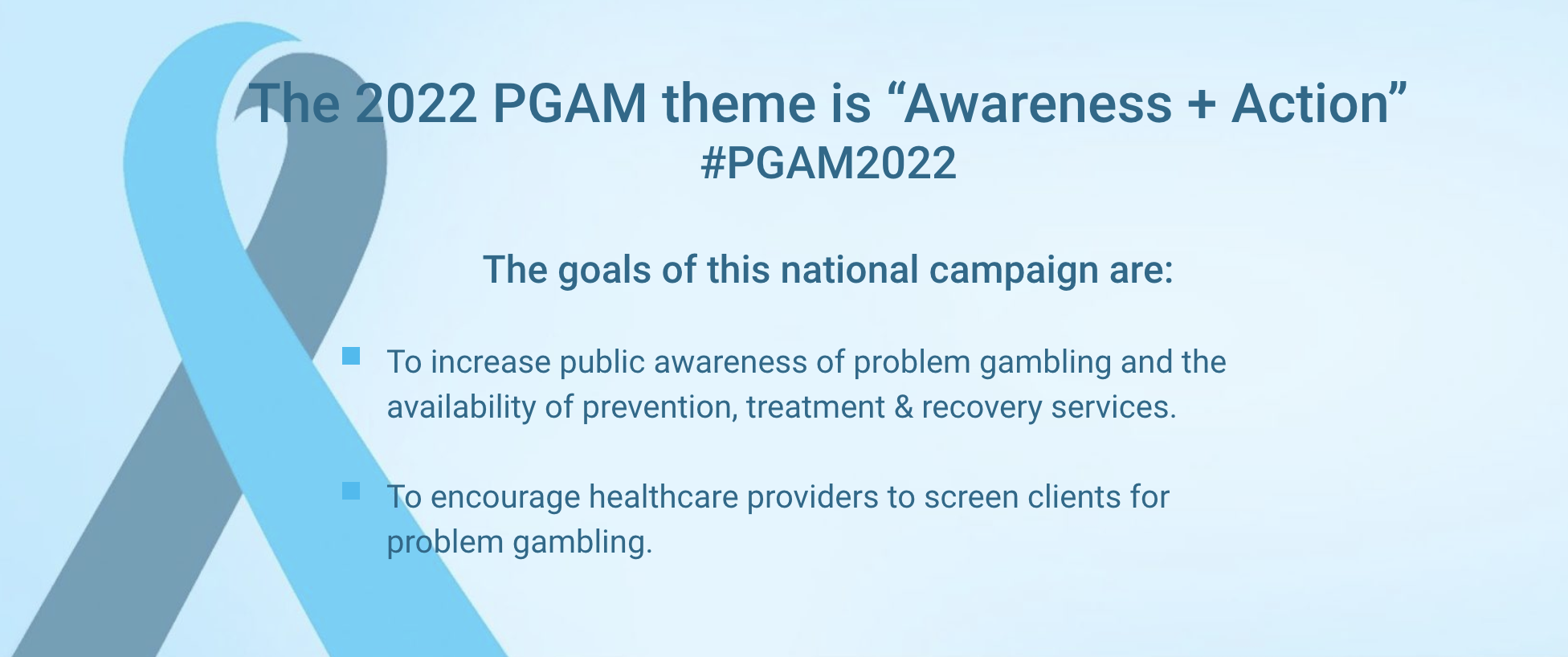This March, AdCare Maine will observe Problem Gambling Awareness Month (PGAM), in collaboration with the National Council on Problem Gambling. The campaign theme “Awareness + Action” aims to increase public awareness of problem gambling and the availability of prevention, intervention, treatment & recovery services. It encourages all providers to have conversations about problem gambling issues and help direct people to the resources they may need.
It’s easy to integrate problem gambling awareness into your organization during March.
#1: Raise Awareness about the Hidden Addiction
Although no substance is ingested, someone with a gambling problem gets the same effect from gambling as one might get from taking a drug or drinking alcohol. But just as tolerance develops to drugs or alcohol, a person experiencing a gambling problem finds that it takes more and more of the gambling experience to achieve the same effect as before. This creates an increased urge for the activity and the person finds that they have less and less able to resist as the craving grows in intensity and frequency.
You can raise awareness about problem gambling by making brochures, wallet cards, and other materials available in your waiting room. The Maine Prevention Store will mail you a supply of no-cost materials. View materials and place your order at https://www.mainepreventionstore.com/collections/gambling
Services in Maine include the Problem Gambling Helpline provided by 211 Maine, and treatment provided by the Maine Gambling Addiction Treatment Network. Treatment can be provided at no cost to individuals who do not have the means to pay. Download our resource guide, with screening tools, self-help guides, peer support groups, and a comprehensive list of problem gambling programs and resources for individuals, families, and professionals in Maine.
#2: Take Action
March 8 is Gambling Disorder Screening Day. You don’t necessarily have to add gambling screening questions to your intake (though we’d love to help you do that if it’s a goal). You can provide self-screening tools in in your waiting area for people to browse and that may start a conversation.
- Take a look at the Screening Day Toolkit provided by Cambridge Health Alliance Division of Addiction.
- Order 50 free copies of the Pocket Screener.
For more information on screening, download the Maine Problem Gambling Screening Toolkit.
2022 Virtual Resource Booth – The booth includes information on services, videos, support, training, and more all in one visual learning experience.
If you have questions or would like more information, contact Lori Manson, Problem Gambling Services Coordinator at lmanson@adcareme.org.
Learning objectives/outcomes:
- Develop an understanding of the brain and its development.
- Understand what happens in the brain when addiction is present.
- Become aware of what can be done to help address these neurobiological changes.
Jon E. Grant, MD, JD, MPH is a Professor of Psychiatry & Behavioral Neuroscience at the University of Chicago where he directs a clinic and research lab on addictive, compulsive, and impulsive disorders. Professor Grant is the author of over 400 peer-reviewed scientific articles and 15 books.

